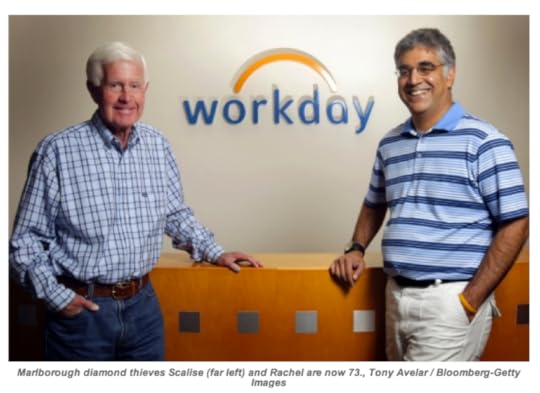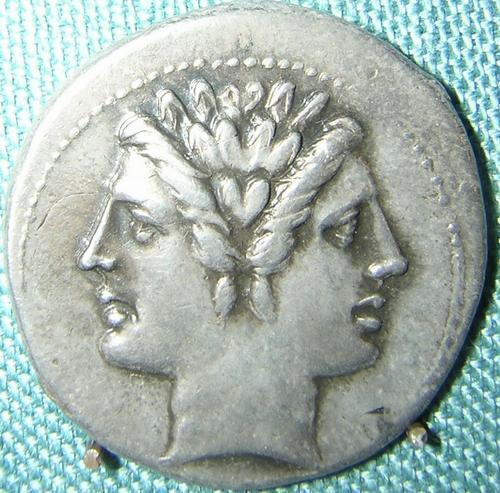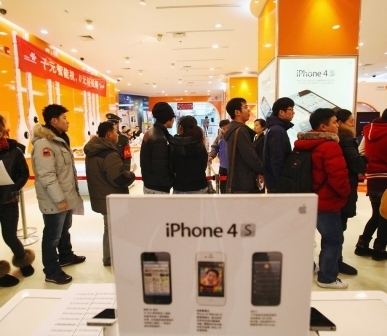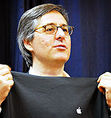Daniel Lyons's Blog, page 11
February 13, 2012
Hit men, click whores, and paid apologists: Welcome to the Silicon Cesspool
It's tough being a journalist, especially if you're covering technology and living in Silicon Valley, because it seems as if everyone around you is getting fabulously rich while you're stuck in a job that will never, ever make you wealthy. What's worse is that all these people who are getting rich don't seem to be any brighter than you are and in fact many of them don't seem very bright at all. So of course you get jealous. And then you start thinking maybe you could find a way to cash in on this gold rush. But how do you make gobs of money when your only marketable skill involves writing blog posts?
This is the conundrum, but lately I've been thinking of a business plan that sounds like it could work. First you establish yourself as an "influencer" by posting a lot of noisy stuff on a blog and building an audience. Then you need to "monetize" your influence. You tell all the VCs in the Valley that you are starting an "angel fund," and you ask each one to give you, say, $500,000. They go along because (a) $500,000 is pocket change to these guys — so small, in fact, that they don't care if they lose every penny of it; and (b) you're an influential hack and they don't want to piss you off; and (c) they figure you can maybe write nice things about their portfolio companies, which would be especially useful if/when one of their portfolio companies gets caught up in some scandal; and (d) if any independent journalists write something critical about one of the VC's portfolio companies, you can can use your influential personal blog to savagely attack those journalists and try to discredit them.
So you raise $10 million or $20 million, and now you're an "angel investor." Step two is you go around to startups and tell them you'd really like to invest in their companies. Not big investments — maybe $100,000. They don't need your money; they can raise money from anyone, and usually you're one of 10 or 20 small investors in a round. But the value you add is that you're an "influencer" and can be helpful when it comes to getting good press or offsetting bad press. (See paragraph above.)
You might think of this as a new kind of PR, only you're way meaner and more effective than a PR flack, and instead of getting paid in billable hours, you're taking payment in angel-round equity, which in a few years should be worth 10-100x whatever those billable hours would have been worth.
In fact this is a new version of an old racket that used to be practiced in the tech space by guys who called themselves "independent analysts." Their deal, back in the day, was this: "Pay seven figures a year to buy a corporate subscription to my newsletter and I'll say nice things about your company, and when the press needs a quote, I'll be there to puff you up. Or, don't buy a subscription and I will bash you relentlessly." Most big companies paid up and considered it a cost of doing business.
Well, this is the model I was thinking about, but it turns out someone beat me to it — it's called CrunchFund, and in the past few days we've seen the machine in action, and it is indeed a beautiful thing.
This started when Nick Bilton of the New York Times posted an item criticizing Path, which had been caught up in a firestorm when it emerged that Path had been uploading entire address books from people's iPhones. Bilton made the legitimate point that it's now become a routine for Valley companies to do something sleazy, get caught, then quickly apologize and get hailed as heroes by the Valley for the quality of their apology. (It's all about being able to fake the sincerity, as George Burns once said.) Bilton's point was that Path didn't just grab those address books by accident. They did it on purpose. It probably took weeks of programming. To just say, "Whoops! Sorry!" seems a bit disingenuous.
Anyway — Path comes under fire, and guess who rides to the rescue? Michael Arrington, who runs CrunchFund, an investor in Path, launches a blistering critique of Bilton himself, comparing him to a pit bull who attacks a dog that is already lying on its back, defenseless, saying that Bilton's column was "a safe way to do business, but not very noble."
Almost before you could stop throwing up in your mouth at the idea of Michael Arrington accusing a Times journalist of being less than noble, Arrington's partner at CrunchFund, MG Siegler, weighed in with his own attack in which he basically said Bilton is a nice guy who was either too lazy or too busy to do a good job. From this Siegler leaps off into a long diatribe about how most tech reporting is utter bullshit written by idiots who are all in a hurry to chase page views.
So: Path comes under fire, and straight away, the paid hit men – Arrington and his sidekick, Matty the Angry Chihuahua — spring into action to smear Bilton and try to discredit him.
I'll give them this much. They're good at what they do. Siegler especially is a nasty little ankle-biter who has developed some level of expertise in launching ad hominem attacks. He did one on me a while back. Then he did one on Josh Topolsky at The Verge.
Now it's Nick Bilton's turn.
Thing is, just last October Arrington was praising Bilton as a superhero tech journalist and "our number one desired hire" when Arrington was at TechCrunch. Even funnier is that in that post Arrington was "reporting" that Bilton had been offered "$1.5 million+" to leave the New York Times and join CBS/CNET. Thing is, that wasn't true. And, Arrington had been told, explicitly, by people at CBS/CNET that his numbers were incorrect. But he went ahead and ran the story anyway, knowing his numbers were wrong.
Now Arrington and Siegler have appointed themselves the watchdogs of tech journalism, eager to point out the irresponsible and inaccurate reporting that they see all around them. This might ring a little less hollow if they hadn't been such egregious violators themselves, and if they weren't writing this stuff to protect the people they're in bed with financially.
Siegler also went after Ryan Tate of Gawker, who had criticized Path's CEO, Dave Morin, for saying, a while back, that Path didn't collect personal data from users.
Siegler says Morin was telling the truth — because Path didn't start collecting data until after Morin had issued that denial. In other words, when Morin said Path didn't collect data he didn't mean they would never do it, just that they weren't doing it right then.
Nice, right?
But of course Ryan Tate is the bad guy here. He's the nasty, unethical, irresponsible sleazebag in this situation — not the CEO who said he didn't collect data right before he started doing exactly that.
From this Siegler transitions into a rambling hand-wringing essay about how tech journalism has become so sloppy and terrible because you have all these bloggers who don't really know anything and they're just trying to generate page views by writing something that isn't necessarily true but will get people to click.
What makes this so hilarious is that Siegler is by far the biggest click-whore in all of tech blogging, a guy whose only real skill, in fact, is the kind of page-view-chasing he now derides.
If nothing else, he is entertaining, though it's often inadvertent. Last year he took time out of his busy schedule to explain to younger bloggers how he he had accomplished his meteoric rise to the top of the blogging world and become the greatest blogger of all time and then had become bored with blogging and had set out to find new challenges. This was done without a hint of irony or, apparently, even a shred of self-awareness, which made it all the more fun. The real secret to Siegler's traffic, however, is that he is pals with Gabe Rivera, who routinely drives traffic to Siegler by giving his pieces top billing on Techmeme. (That's right, kids. Techmeme is rigged.)
Siegler is constantly mocked by readers who regard him as a laughable troll — a mean-spirited, egomaniacal buffoon who is not very bright but thinks he's the smartest guy in the room. He is a self-styled "big thinker" who compares Google to movie villains (Le Chiffre, Voldemort, Harvey Dent) and who, in all of his manic blogging, has left a string of cock-ups and false "scoops" behind him.
Last year he generated lots of traffic for TechCrunch with a "scoop" about the Amazon Kindle Fire. He said he'd actually used one — but then he got almost every fact wrong, including the name of the product. Later, he defended himself by saying that, yes, his original post got the facts wrong, but in a later "update" (that's blogger-speak for "correction") he fixed all that. So there.
Then there's the post in December where MG got into his Angry Chihuahua mood again and thought he'd uncovered some kind of huge conspiracy when he accused Google's Android chief, Andy Rubin, of deleting a tweet. A few days later Siegler had to recant (sans apology, of course) when it turned out that, um, nope, Rubin hadn't done that. Of course there's a simple way to avoid bonehead moves like this — you do the reporting before you publish the accusation, not after.
Then there's the case where Matty got all upset and threw a tantrum like some kind of junior high school kid because Google+ wouldn't let him use a profile photo in which he's giving the finger. His stock in trade is the rant where he declares that "XYZ is dead!" (this week it's tech journalism) or "If you think XYZ, you're a fucking idiot!"
Now he thinks it's wrong to go chasing clicks and page views with sensationalized garbage. How odd and inspiring it is that Siegler's profound change of heart should happen after Path, a company in which CrunchFund has invested, is getting criticized.
Arrington and Siegler can try to play journalism police all they want, but the fact is they have turned themselves into hacks for hire and as such have lost all credibility. They're not the only ones working this racket. Now we have PandoDaily, a new tech blog crated by their TechCrunch pal Sarah Lacy and funded by CrunchFund and a bunch of other VCs and angels whose companies PandoDaily aims to cover.
PandoDaily is working the same deal as CrunchFund. You invest in our site, and now we're business partners, so at the very least you'll have a friendly media outlet whose "influence" you can call upon.
These folks will say they never promised any special treatment to the VCs when they went around with their hands out asking for money. Maybe that's true. But I have talked to people on the other side of those transactions and this is definitely what the VCs were thinking when they were writing the checks.
The line from one VC firm that invested in CrunchFund was this: "A few hundred thousand is a rounding error for us. We don't care if we never see the money again. It's so small it doesn't even affect our results and isn't even considered material enough to be reported to our limited partners. And it couldn't hurt to have Mike as a friend."
Separately another VC recently told me his firm recently had passed on opportunities to invest in some new tech blogs that were proposing a business model he described as "hush money." Potential investors were being offered "most favored nation" status for themselves and their portfolio companies if they put money into the site.
This is what now passes for "journalism" in Silicon Valley: hired guns and reformed click-whores who have found a way to grab some of the loot for themselves. This is perhaps not surprising. Silicon Valley once was home to scientists and engineers — people who wanted to build things. Then it became a casino. Now it is being turned into a silicon cesspool, an upside-down world filled with spammers, liars, flippers, privacy invaders, information stealers — and their grubby cadre of paid apologists and pygmy hangers-on.
The most delicious part of Siegler's rant on the tech media is the final paragraph:
The only thing I can offer is the advice to take everything you read in the technology press with a grain of salt. Perhaps several. The likelihood that at least part of it is nonsense is very strong. And stronger by the day.
For once, I could not agree more.
February 6, 2012
Daily Beast, FTW!
So I have a story in this week's Newsweek about Workday, a cool software company in California that might do an IPO later this year. For some reason when the story ran online on the Daily Beast this morning, the photo of the company's two CEOs had the wrong caption — and identified these two guys as effing goddamned diamond thieves! I was not even aware of this until the PR rep for Workday called to inquire. I contacted the Beast copy desk and they've fixed it. But the original was so priceless that I had to save a screen shot. (See below.) I do hope the guys at Workday have a sense of humor. If so, they'll have this pinned up around the office today. If not, um, sorry.
February 1, 2012
These mini copters flying in formation are the coolest thing I've seen all day
Developed at the University of Pennsylvania. Just: wow.
January 31, 2012
Google puts on its war face
When Larry Page asked Steve Jobs for advice, did Jobs tell him to drop that ridiculous "Don't be evil" thing? My take on Google's embrace of the dark side is here on the Daily Beast.
January 27, 2012
Google falls short of its noble, ethical ideals, says blogger who took $2.5 million from people she writes about
January 26, 2012
The two faces of Apple
"Cognitive dissonance" is the way to describe what I'm feeling this morning after reading this amazing, blistering investigative piece in the New York Times about Apple and its Chinese manufacturing partners. This time former employees at Apple and Foxconn are speaking out, and the picture is worse than previously believed. Even the notion that "every company does business this way in China" (which many people, myself included, have espoused) turns out not to be true. Apple, according to the article, is worse than the others. It pushes suppliers so hard that the only way they can make a profit is to cut corners and hurt workers. If the article is to believed, Apple does this knowingly. While Apple talks a lot about inspecting factories and dormitories, and insisting on a code of conduct, in reality these inspections don't accomplish very much. Meanwhile, factories blow up. Read the article and see if you can ever forget the story about the guy who got his face blown off and died when a completely preventable aluminum dust explosion ripped through his workspace.
It's all incredibly depressing and disappointing.
And confusing, too, because this side of Apple contradicts so sharply with the Apple that all of us experience. It seems there are two different Apples — the one that deals with suppliers and the one that deals with customers. And the two are so different as to be almost unrecognizable. Earlier this week when Apple reported its jaw-dropping financial results for the fourth quarter, I wrote an article for the Daily Beast saying that Apple deserves every bit of its success, because it was winning the old-fashioned way, by making great products and delivering awesome customer service.
If you're an Apple customer and you've ever had to deal with Apple customer service, you no doubt know what I'm talking about. They're consistently amazing. They're beyond pretty much anything I've ever experienced with any other company. They're friendly. They're generous. They're kind. What's more, this feels sincere. Apple truly has created a culture that is built around treating customers extraordinarily well. Moreover, over the years I've met people who work at Apple, and they are good people who really believe in what they are doing.
Of course Apple isn't being nice to customers for the sake of being nice. It's smart business. And it's so obvious that you wonder why all companies don't do this. For whatever reason, most don't. But Apple does. It may be the biggest part of Apple's value proposition — the fact that, if anything goes wrong, you know Apple will take care of it for you.
So maybe this two-faced culture makes sense from a business perspective: Treat customers like royalty + treat suppliers like slaves = profit.
But a real sense of discomfort arises from being the one who benefits from that bargain.
I don't begrudge Apple its profits or its $100 billion in cash. The problem I'm having isn't with Apple, but with me.
In our household we have two iMacs, four MacBooks, four iPhones, a Time Capsule, two Apple TVs, an old Mac Mini and countless iPods.
I love these products. I love Apple's customer service. I've recommended Apple products to countless friends and relatives.
I hate feeling crappy about that. But right now I do.
Apple has enough money and enough influence to change this. They could make things right. It might not be easy, or cheap. But they could do it.
Apple could make the face they show to suppliers more like the one they show to us. I hope they will.
January 24, 2012
Why Apple deserves every bit of its success
Great products. An ecosystem of hardware-software-content. Fantastic customer service. Brilliant marketing. Awesome retail stores. World-beating supply chain and operational expertise. This is a company unlike anything any of us have ever seen. They have earned every bit of their success. And they are only getting stronger. My longer take on today's phenomenal earnings report is here on the Daily Beast.
Apple is not just a company, it's a cultural phenomenon
I'm writing up the latest quarterly numbers — sales of $46 billion! — and realizing (again) that in 10 or 20 years, when we look back on this decade, Apple, perhaps more than anything else, will be what we think of when we think of this era. Here is a $100-billion-plus company that just grew at a 73-percent rate. That's just not supposed to happen. Sales in this recent quarter were greater than in all of fiscal 2009. And there is nothing in sight to stop this freight train. Superlatives fall short. This is beyond dominating an industry. This is about defining an age. Apple, we are not worthy.
January 23, 2012
Rumor: Apple spent $100 million in its first case against HTC — and got almost nothing
As I reported in this week's Newsweek, Apple's "thermonuclear war" on Android smartphone makers has been fizzling out lately. Most of Apple's legal claims have been tossed out, and the two minor victories Apple has scored were so trivial that opponents could work around the claim by making minor changes to their products.
But a person close to the situation tells me there's a rumor going around among the lawyers that Apple spent $100 million just on its first set of claims against HTC.
Who knows if it's true, but if so, Apple didn't get a lot for its money.
Apple brought the case against HTC with the International Trade Commission in February, 2010. Apple wanted the ITC to block HTC from importing products into the United States.
Apple's case against HTC started out with 84 claims based on 10 patents. But by the time the case got to a judge only four patents were involved.
The final ruling was that one patent was totally invalid because of prior art, and should never have been issued to Apple. On two other patents, the ruling was that HTC was not infringing on the patents, and, worse yet, that Apple itself was not using those patents in its own product, which means Apple had no right to seek an injunction based on them. (ITC injunctions are intended to protect "domestic industry," and to get one you need to show that you are "practicing" the patent that you claim someone else is infringing.)
On the last patent the ITC found that HTC was infringing and that Apple was practicing the patent.
That got reported as a victory for Apple. But in reality the infringement involved a relatively tiny software feature, one that lets you press on a phone number in an email or Web page and bring up a menu from which you can choose to call the number, send a text message, and so on.
HTC can resolve the infringement simply be removing that feature from phones it sells in the United States, or by finding a different way to implement that feature that sidesteps the patent.
So Apple started out with 10 patents — presumably its best ones — and ended up with a tiny victory on just one. Was that worth $100 million?
Apple certainly can afford the legal fees, and shows no sign of letting up.
Apple has a second complaint against HTC pending at the ITC, involving other patents, with a ruling expected by March 2013. Both of these cases, the one that's been ruled on and the one that is pending, have also been filed with district courts in the U.S., though those cases have been stayed pending the outcome of the ITC cases.
HTC has two claims pending against Apple with the ITC as well, the first one due for a decision next month and the second in April 2013. And then there are other claims, all over the world, against HTC, Samsung and Motorola.
But all of those guys are now suing Apple as well. Apple already got its ass kicked by Nokia and had to pay royalties for infringing on Nokia patents.
Eventually everyone is going to settle. (Steve Jobs may have wanted to drive Android out of exixtence, but that's probably not going to happen.) The question is what kind of terms will everyone get in these settlements. The court fights are really just a way of jockeying for position and trying to gain leverage for the great settlement that is yet to come.
In that sense, whatever Apple is spending on legal fees is probably money well spent.
They wake you in the middle of the night, give you tea and a biscuit, and then you start your 12-hour shift
Was anyone else horrified by that amazing article in the New York Times explaining why Apple builds products in China instead of the United States? How do we justify buying products from factories where people are treated in ways that we would never allow ourselves or our countrymen to be treated? As one former Apple executive says, "What U.S. plant can find 3,000 people overnight and convince them to live in dorms?" Yeah. We can't do that. What's more stunning is that some people seem to see this as a failing on our part. My longer reaction to that article just went up on the Daily Beast this morning.
Daniel Lyons's Blog
- Daniel Lyons's profile
- 7 followers











